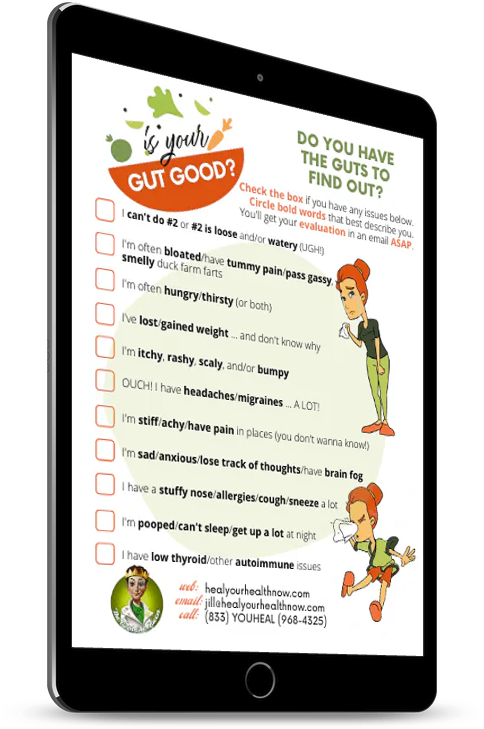I’ve been saying this for YEARS! And have tons of testimonials on my website to bear it out! (Just go to the FOODStrong page to read them) I know that testing for food sensitivities and avoiding sensitive foods WORKS. But … striking research proving it actually came from YALE this time.
According to the researchers, “the majority of these food intolerance tests have not been validated by rigorous study”. I even remember one woman a while ago calling me up for a test for her young child. “My doctor tells me these kinds of tests are bunk!” she said. “Then why are you calling me?” I replied.
The truth is that Irritable bowel syndrome (IBS) is the condition most seen by doctors in the U.S., with 8%–20% of the population meeting its diagnostic criteria. Direct and indirect costs are estimated at $1.5 billion annually. Over 60% of patients with IBS report symptoms related to food; symptoms increase when eating certain foods and abate when they’re avoided.
And, to date, no medication has helped this condition. The best solution appears to be avoiding foods that might be causing a problem. The problem is … how do you know what foods to avoid?
Rationale for the Study
Smart researchers, realizing a profound need for an IBS solution, undertook this study for two reasons:
- Previous trials of elimination diets for IBS, like the FODMAP diet, found varying degrees of relief in participants.
- No previous randomized trials have been published assessing the success of leukocyte activation testing (like ALCAT and LEAP) in IBS.
These researchers described leukocyte activation tests in this way … they “culture peripheral blood leucocytes with standardised extracts of individual foods, utilising flow cytometry to detect morphological changes in leucocytes after exposure to food extracts, claiming to identify intolerance to the foods. Clinicians use these tests, then make targeted food elimination recommendations.”
Study Results
This was actually a double-blind, placebo-controlled study … the preferred way to examine anything … often a problem with food-related research. But researchers leukocyte-tested all 58 participants and randomized them into two groups … one of which actually avoided sensitive foods and the other that ate foods inconsistent with their test results.
“We didn’t expect results like this,” said Ather Ali, first author and assistant professor of pediatrics and of medicine at Yale School of Medicine. “The people who consumed the diet consistent with the test did significantly better than people on the sham diet.”
Researchers concluded that “a diet guided by leucocyte activation testing results in demonstrable clinical improvement in IBS. These clinical results, associated with a reduction in plasma neutrophil elastase, have implications for better understanding the role of food intolerance and the pathophysiology of IBS”.
It was also significant to me that they divided the “real” diet people into two further groups … one that followed the diet almost religiously and the other that ate restricted foods three or more times during the four weeks of the study. No significant differences were found between groups.
What All This Means for Me … And You …
Well …it probably means that even the medical community has realized that all those pills they’re inventing don’t do the trick for this very baffling problem. They don’t realize … or aren’t ready to cop to … the fact that IBS is an inflammatory condition that is best treated by avoiding the foods that cause the inflammation in the first place.
These concepts fly in the face of the traditional have-a-symptom, take-a-pill model and can be largely labeled alternative. But I guess the medical community is being forced to look in this almost radical direction as nothing else seems to work.
And, in reality, there is research connecting these types of diets to IBS treatment. But this study is a giant step for more visibility … and validation by the medical community … for this life-saving process.
I was also taken by the fact that even those who somewhat digressed from the diet had the same results and those that didn’t. Which led me to believe that perfection isn’t necessary to achieve good results with this type of program.
Oh … and they used the ALCAT test, which was developed by the same person, Dr. Mark Pasula, that developed LEAP. To my knowledge, not a lot of upgrading has been done on ALCAT, and the dietary program merely avoids sensitive foods. Whereas LEAP has been upgraded three times since I started using it ten years ago.
Not only that, LEAP has a specific reintroduction program where you start with the least reactive foods the first week and build out so you’re only eating non-reactive foods … the least reactive first … for a month. This adds an extra dimension to the elimination diet and allows the body to cool down from inflammation much more quickly than just eliminating reactive foods.
Also, only dietitians are certified to be LEAP practitioners. The company’s rationale … that dietitians are food people and therefore are the best ones to guide participants through the pitfalls of lifestyle change. Dietitians were also used to educate subjects in the Yale study.
So what does this mean for you? If you’re suffering from IBS, consider food sensitivity testing. It may mean the difference between debilitating pain and other problems and having a changed life. With no gas, bloating, or other digestive issues.
Leave Your Comments about Individualized diets for irritable bowel syndrome better than placebo Below
What have you used to heal your IBS? Has it worked? Are you open to new things?


Leave a Reply